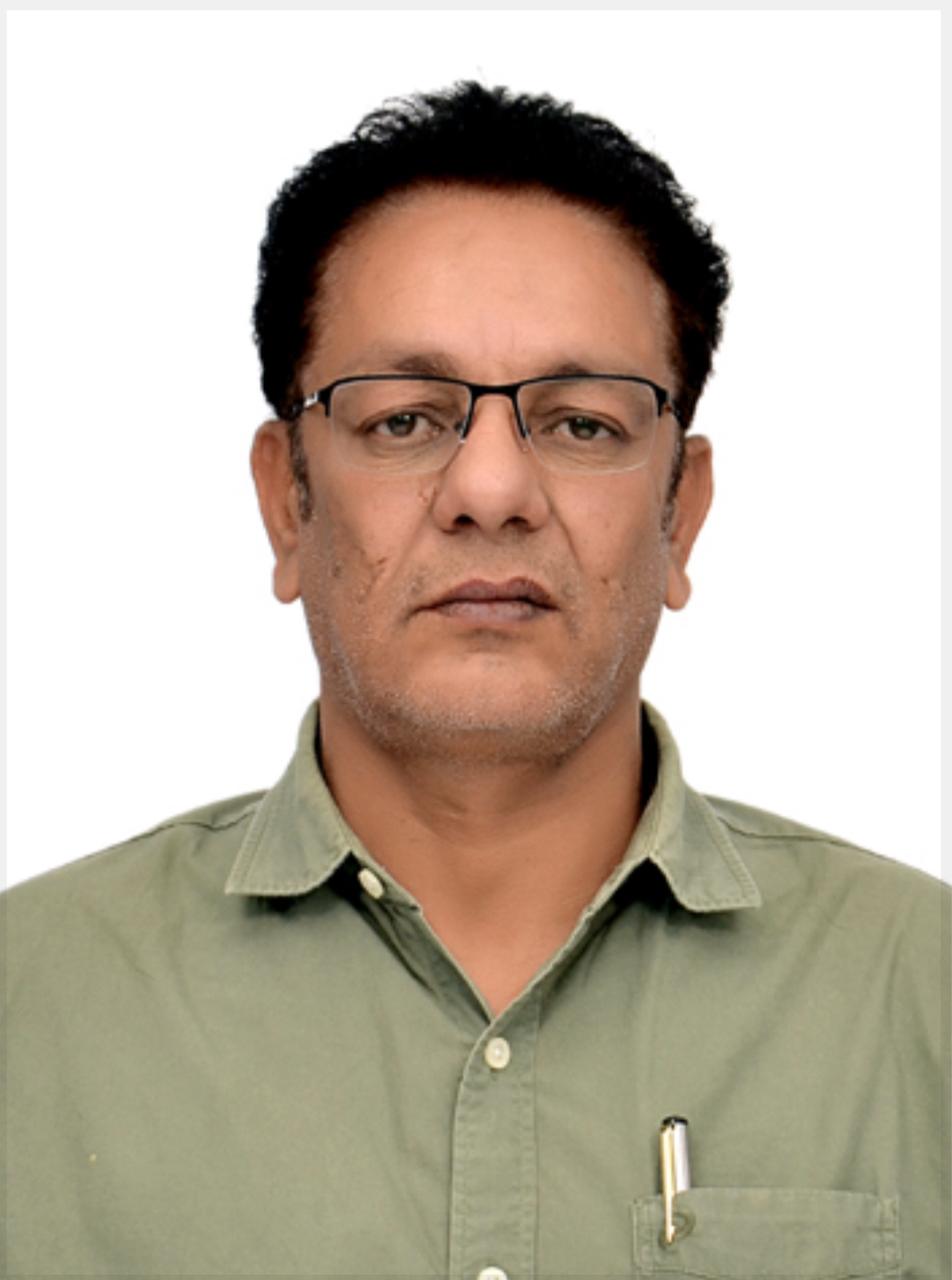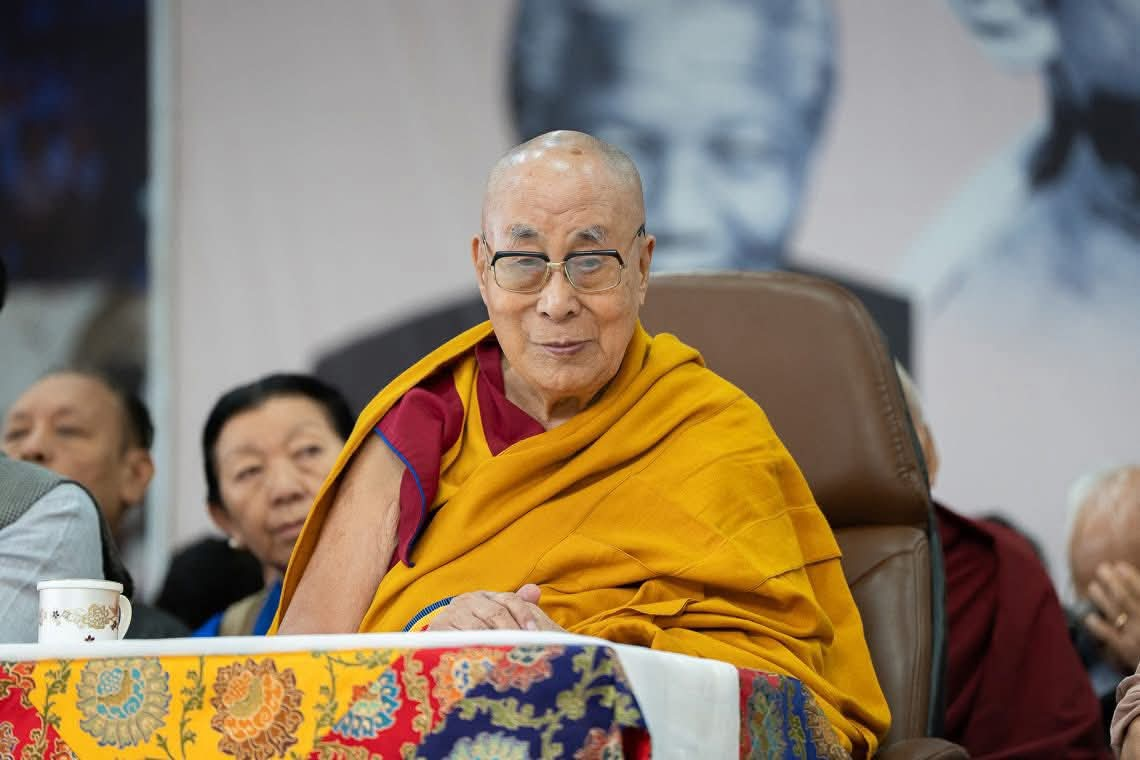
Prof. (Dr) Arvind Kumar Singh
Dharamshala, nestled in the Dhauladhar range of Himachal Pradesh, India has become globally recognized not only as a picturesque hill town but also as a spiritual and political center for the Tibetan diaspora. This transformation is largely credited to the arrival and leadership of His Holiness the 14th Dalai Lama, who turned the area into a living karmabhūmi, a sacred ground of virtuous action. Today, Dharamshala, often called “Little Lhasa,” serves as the de facto capital of Tibetans in exile and a beacon of Buddhist values, intercultural dialogue, and global ethics. Dharamshala lies in Kangra district, Himachal Pradesh, divided into Lower Dharamshala (administrative zone) and Upper Dharamshala or McLeod Ganj, home to the Dalai Lama and the Tibetan community. Surrounded by snow-covered peaks and forests, the region offers an ideal environment for meditation and spiritual practice. Historically, the area was part of the Trigarta kingdom and later became a British cantonment. After a devastating earthquake in 1905, the town declined until its spiritual rebirth following the Dalai Lama’s arrival.
The Dalai Lama’s Arrival and Tibetan Resettlement: In 1959, following the Chinese suppression of the Tibetan uprising, the Dalai Lama fled Tibet with about 80,000 followers. India granted him asylum, and in 1960, Dharamshala was chosen as the seat of the Central Tibetan Administration (CTA). From this moment, the spiritual and political identity of Dharamshala changed. Schools, monasteries, and institutions began to flourish under the Dalai Lama’s guidance, emphasizing non-violence (ahimsa), compassion (karuṇā), and universal responsibility (spyi’i drang ba). The establishment of institutions like the Library of Tibetan Works and Archives (LTWA) in 1970 and the Institute of Buddhist Dialectics (IBD) in 1973 marked major milestones in preserving Tibetan culture and philosophy. The LTWA houses invaluable manuscripts, while the IBD continues the Nālandā tradition of debate, philosophy, and logic. Other important monasteries such as Namgyal Monastery and Gyuto Tantric Monastery contribute to Dharamshala’s spiritual richness.
Dharamshala is more than a refugee town; it is a hub of global moral leadership. The Dalai Lama’s teachings and diplomatic efforts have reached over sixty nations, engaging figures like Barack Obama and Pope John Paul II. His philosophy of “universal responsibility” emphasizes that global peace stems from individual compassion. This moral vision has inspired secular ethics programs worldwide, including the Dalai Lama Center for Ethics and Transformative Values at MIT. These initiatives draw on Buddhist principles such as interdependence and mindfulness but frame them in universal human terms to reach a broader audience. The Dalai Lama’s ecological vision is deeply rooted in Buddhist teachings on interdependence (pratītyasamutpāda) and non-harming (ahiṃsā). He has championed sustainable living and environmental preservation as spiritual responsibilities. Cultural institutions like the Norbulingka Institute further contribute by preserving Tibetan arts, music, and traditional crafts, reinforcing Tibetan identity in exile.
Reviving Indian Buddhist Heritage and the Nālandā Tradition: Though a Tibetan spiritual leader, the Dalai Lama has played a pivotal role in revitalizing Indian Buddhism. He consistently reminds Indians that while India is the “guru” and Tibet the “disciple,” it is now Tibetans who have preserved India’s ancient Buddhist wisdom. His teachings in places like Bodh Gaya and Sarnath have rekindled Indian interest in Buddhism, especially among Dalits inspired by Dr. B. R. Ambedkar. Institutions like the Central Institute of Higher Tibetan Studies in Sarnath and LTWA serve as centers for Indo-Tibetan Buddhist learning. The Dalai Lama has also encouraged translations of Tibetan scriptures into Sanskrit and Hindi, helping Indian audiences reconnect with their spiritual heritage.
The Nālandā tradition, once flourishing at the historic Indian monastic university between the 5th and 12th centuries CE, forms the backbone of Tibetan Buddhism. Emphasizing dialectical logic, rigorous scholarship, and ethical conduct, the tradition continues through Tibetan monastic curricula in exile. Texts by Nāgārjuna, Asaṅga, Dharmakīrti, and Śāntarakṣita remain central. Institutions like the re-established monastic universities, Sera, Drepung, and Ganden, carry forward the Nālandā lineage. In Dharamshala, the Institute of Buddhist Dialectics serves as the torchbearer of these traditions. Tibetan monks undergo decades of training culminating in the Geshe degree, engaging deeply with logic and debate rather than faith alone. The Dalai Lama has expanded the Nālandā tradition beyond religious boundaries, promoting its logical and ethical frameworks as tools for secular education. In works like Beyond Religion and Ethics for the New Millennium, he advocates for an “education of the heart”, merging reason with compassion.
His scientific curiosity has led to dialogues between Buddhist psychology and modern neuroscience, notably through the Mind and Life Institute, bridging ancient contemplative insights with cognitive science. The Dalai Lama’s reference to Nālandā also serves as a symbol of India’s Buddhist legacy. His statement, “India is the guru; Tibet is the disciple”, has resonated with Indian leaders, prompting efforts to revive Buddhist scholarship and heritage sites. For Tibetans, the Nālandā lineage offers continuity and identity; for the world, it provides an ethically grounded, rational spirituality.
As His Holiness the Dalai Lama marks his 90th birthday, the occasion is not just a personal milestone but a global moment of reflection. His teachings have spanned the spiritual and secular, East and West, tradition and science. His core message, that true transformation begins within, and that kindness is the essence of religion, continues to inspire millions. Dharamshala, under his guidance, has evolved into a sacred landscape, a mandala where Tibetan identity is preserved, Buddhist teachings flourish, and universal values are taught. Visitors from around the world come to engage with his teachings at the Tsuglagkhang Complex, often translated live into multiple languages. Prominent Western monastics like Pema Chödrön and Thubten Chodron have trained here, helping transmit Tibetan teachings globally.
The Central Tibetan Administration (CTA) stands as a model of democratic governance in exile, emphasizing non-violence and dialogue over confrontation. Dharamshala’s transformation from a colonial cantonment into a moral epicenter exemplifies how compassion and ethical leadership can revitalize a community.
To sum up, Dharamshala is not merely a heaven for exiled Tibetans, it is a karmabhūmi for the entire world, sanctified not by power but by compassion, and guided by the enduring wisdom of the 14th Dalai Lama.
* Writer is Professor of Gautam Buddha University






